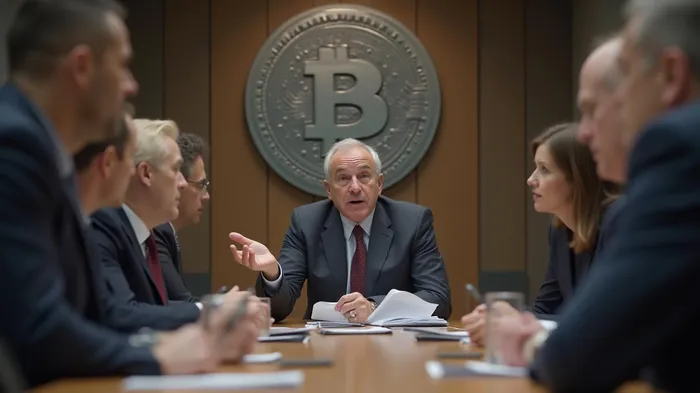Swiss National Bank Rejects Bitcoin as Reserve Asset Due to Volatility
Swiss National BankNBHC-- President Martin Schlegel has firmly dismissed calls to hold Bitcoin as a reserve asset, citing concerns over the cryptocurrency's market volatility and liquidityLQDT--. Schlegel's stance was reiterated at the bank's General Assembly meeting, where he emphasized that cryptocurrencies do not currently meet the requirements for Switzerland’s central bank reserves. He highlighted that while market liquidity may seem adequate at times, it is often called into question during crises, and the high volatility of cryptocurrencies poses a risk to long-term value preservation.
Schlegel's comments come amidst growing pressure from local crypto advocates, who argue that adding Bitcoin to Switzerland’s treasury would be a prudent move as the global economy shifts towards a multipolar order. Luzius Meisser, a board member of crypto broker Bitcoin Suisse, has been vocal about the need for this change, suggesting that the move should be made urgently due to the perceived weakening of traditional currencies like the dollar and the euro.
This is not the first time Schlegel has expressed skepticism about incorporating Bitcoin into the Swiss central bank’s reserves. Last month, he reiterated his concerns about the lack of stability, liquidity, and security in cryptocurrencies. Despite Switzerland's increasing acceptance of cryptocurrencies, with various banks offering related services, the Swiss National Bank's leadership remains cautious about adopting Bitcoin as a reserve asset.
Schlegel's position mirrors the broader stance in Europe, where the European Central Bank President Christine Lagarde has also dismissed Bitcoin as "unsafe," asserting that it will not enter the reserves of any central banks. In contrast, the United States has taken a different approach. Last month, the U.S. President signed an executive order to create a strategic Bitcoin reserve, funded by retaining seized crypto assets. This order authorizes the Treasury and Commerce Departments to explore budget-neutral ways to increase these holdings and establishes a separate Digital Asset Stockpile made up of non-Bitcoin crypto assets confiscated in legal proceedings.
Schlegel's dismissal of Bitcoin as a reserve asset underscores the ongoing debate within the financial community about the role of cryptocurrencies in central bank reserves. While some advocates see Bitcoin as a hedge against macroeconomic uncertainty, central bankers remain cautious due to the cryptocurrency's volatility and liquidity issues. This debate is likely to continue as the global economy navigates through uncertain times and as more countries explore the potential of digital assets.

Quickly understand the history and background of various well-known coins
Latest Articles
Stay ahead of the market.
Get curated U.S. market news, insights and key dates delivered to your inbox.



Comments
No comments yet